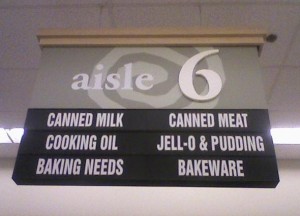Ogooglebar: Brand loyalty Vs trademarks
It’s hard not to be riveted by the news that Sweden’s language watchdog has accused Google of linguistic imperialism because it has been forced to remove “ogooglebar” (or ungoogleable) from the unwritten national vocabulary.
Google argues that it is disingenuous to define “ogooglebar” (as the Swedes did) as something “that cannot be found on the Web with a search engine” when actually it refers specifically to Google searches. It also reportedly asked for a disclaimer that made clear Google was a registered trademark. With the feistiness that is to be expected from descendants of the Vikings, the Swedish Language Council rejected Google’s demands by simply deleting the word.
Might Google rue the day that it was taken out of the evolving Swedish dictionary? The Swedes set great store by words being a very precise people. As the joke goes, when a Swede was asked if he had lived in Stockholm all his life, he replied, “not yet.”
So is Sweden linguistically the poorer sans ogooglebar? And should brands restrain linguistic growth?
The Swedish Language Council is not best pleased. It has criticised “Google’s attempts to control the language” and its head, Ann Cederberg, has declared that “speech must be free…it’s our use (of the word) that gives it meaning – not a multinational company exerting pressure.”
She added, for good measure that Google appeared to have “forgotten (that) language development doesn’t care about brand protection.”
There is something to be said for allowing a brand to become a generic trademark, or synonymous with a general class of product or service. Scotchtaping for slapping some plastic tape onto something; Bandaid for an antiseptic bandage. And here in Haiti, the list of generic trademarks is particularly long: Delko for generator, Kodak for camera, Panmpez for diapers, Fab for laundry detergent, Kornfleks for cereal.
One might argue that one what a brand loses in exclusivity, it gains in stature – having become the very essence, in the public mind, of the product or service it provides. Perhaps someone has these figures, but it would be interesting to find out if the Hoover Company lost out because its brandname became both a noun and verb vacuum cleaners and cleaning.


